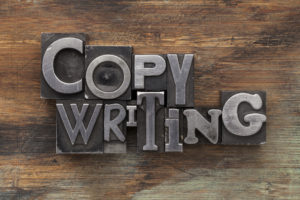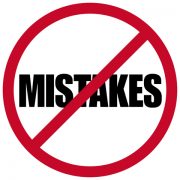The Show Business Food Chain
 Look at show business like a pyramid. Not a pyramid scheme, but like a numbers diagram with the largest amount of the show business population being the at the base…that’s you, the actor.
Look at show business like a pyramid. Not a pyramid scheme, but like a numbers diagram with the largest amount of the show business population being the at the base…that’s you, the actor.
You’re not at the bottom of the food chain because you aren’t important, you’re at the bottom because there are so very many of you (approximately 50K new actors enter the U.S. marketplace every year!)…more people than any other type of person involved in the entertainment industry.
So who is next up on this pyramid? Agents. Yep, actors are all seeking representation to enhance their network of relationships and get to the next level, just one step above where you are on the food chain! There are fewer agents and managers than there are actors…but you knew that!
Talent agents and managers are lobbying and pitching and submitting their clients for the audition slots offered by casting directors. Yes, they are next up on the ladder and there are more agents/managers than CD’s, thus it follows agents often feel in the same position of knocking on doors trying to get in.
Who do casting directors fight to get in the door of, serve, get work from? Though generally hired and paid for by the producers, ultimately their job is to please the directors of the project they cast for, fulfilling the director’s vision by bringing the best possible candidates for the role directly to them, making their job easier.
And who are directors out there trying to please? The producers that hired them and provide their paycheck. Of course the director also wants to please the audience that will ultimately watch the film, TV show or play, but the ticket buying audience has to, well, buy the ticket! The director has the responsibility of creating the whole project, setting the tone, telling the story, and if all works out, the producers are pleased because the project is not only a creative and critical success but a financial success as well.
Some will argue my last point, but at the top of the show business food chain is ultimately the writer. If we don’t have prolific, visionary writers shaping story to move, touch and inspire audiences, then we have nothing to produce, direct, cast, represent and ultimately act in.
Therefore, a HUGE tip for actors is to become friends with, get to know, network with and create relationships with writers or just become one yourself. Ultimately these story tellers are the ones that shape our views and ultimately, the world.
It's really all about the numbers, not status, worthiness or value…and it gives you the opportunity to see that defining your product, shaping your message, and marketing yourself consistently is ultimately what show business is all about.
What are your thoughts on the hierarchy of the business of show?



 The term breakdown was actually coined by the creator of Breakdown Services in 1971. Gary Marsh was the son of a prominent agent at the time and the story goes that he was asked to fill in on a particularly busy day doing for his mom what most agents did at that time to get their clients work.
The term breakdown was actually coined by the creator of Breakdown Services in 1971. Gary Marsh was the son of a prominent agent at the time and the story goes that he was asked to fill in on a particularly busy day doing for his mom what most agents did at that time to get their clients work.


 In my
In my 
 As actors we love a good story so we tell them a lot. As a woman, I know I have the urge to tell all of the minor components that set up the actual point to what it is I really want to say before saying it. The POINT of it all. I'm not sure that's an entirely female quality but I've noticed it with my girlfriends where my guy friends seem to get to their point a little faster. I've even been told I talk too much. Whaaaat? Well now I'm told I write too much. In fact this first paragraph is not even needed to get to the point of what I'm writing today, but I'm keeping it in as an example!
As actors we love a good story so we tell them a lot. As a woman, I know I have the urge to tell all of the minor components that set up the actual point to what it is I really want to say before saying it. The POINT of it all. I'm not sure that's an entirely female quality but I've noticed it with my girlfriends where my guy friends seem to get to their point a little faster. I've even been told I talk too much. Whaaaat? Well now I'm told I write too much. In fact this first paragraph is not even needed to get to the point of what I'm writing today, but I'm keeping it in as an example!
 I see actors make a lot of mistakes that could totally be avoided. When it comes to figuring out your fit in the vast marketplace of actors, where there’s a large supply and you’re not yet in demand, distinguishing yourself, i.e. defining your product, is ESSENTIAL. Here are some mistakes to avoid:
I see actors make a lot of mistakes that could totally be avoided. When it comes to figuring out your fit in the vast marketplace of actors, where there’s a large supply and you’re not yet in demand, distinguishing yourself, i.e. defining your product, is ESSENTIAL. Here are some mistakes to avoid:
 What are you uniquely qualified to do as an actor that NO ONE else can do or be? Have you ever thought of that? What’s your brand, archetype, bread and butter niche range of characters that you’ll become known for and reliable and counted on to create time and time again? This is where the rubber meets the road. Having this down pat is not an option. It’s what will inform and feed the actions you take in advancing your career. Your actions determine your results. This is a big CLUE here so if you haven't taken this important step, this is your reminder to do it now!
What are you uniquely qualified to do as an actor that NO ONE else can do or be? Have you ever thought of that? What’s your brand, archetype, bread and butter niche range of characters that you’ll become known for and reliable and counted on to create time and time again? This is where the rubber meets the road. Having this down pat is not an option. It’s what will inform and feed the actions you take in advancing your career. Your actions determine your results. This is a big CLUE here so if you haven't taken this important step, this is your reminder to do it now!


 Want to quicken the abracadabra of your career? The truth is, you already inherently know what to do. Before I move on to my next set of posts with the content “to-dos” of your career, you’ve first got to realize that trusting your own intuition is key. It won’t matter if I give you the Keys to the Kingdom if you don’t know how to unlock the door.
Want to quicken the abracadabra of your career? The truth is, you already inherently know what to do. Before I move on to my next set of posts with the content “to-dos” of your career, you’ve first got to realize that trusting your own intuition is key. It won’t matter if I give you the Keys to the Kingdom if you don’t know how to unlock the door.
 OK, OK, I hear ya. A few posts back I gave you the answer to how to stop struggling by creating inspiration. The answer was this: the minute you’ve recognized the thought that is creating the struggle, just let it go.
OK, OK, I hear ya. A few posts back I gave you the answer to how to stop struggling by creating inspiration. The answer was this: the minute you’ve recognized the thought that is creating the struggle, just let it go.